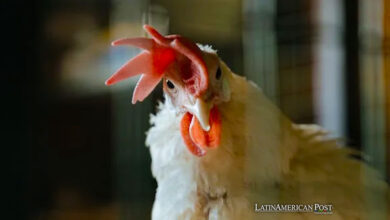Oligopolies and Multinationals: Who Profits From Food Insecurity?
Large companies in the food industry are keeping a larger proportion of the business, while hunger increases in the world.

Photo: Pexels
LatinAmerican Post | María Fernanda Ramírez Ramos
Listen to this article
Leer en español: Oligopolios y multinacionales: ¿Quiénes se lucran de la inseguridad alimentaria?
The international organization Greenpeace presented a report entitled "Food injustice 2020 – 2022. Without control, without regulation and without accountability: Who benefits from hunger?" . In this text, they ensured that the 20 largest corporations in the food industry (grains, meat, dairy, and fertilizers) obtained profits of more than 53,000 million dollars for their shareholders in 2020 and 2021.
These data occur in a scenario where food insecurity has also increased for millions of people. It is a huge figure, taking into account that the UN has estimated that with less money (51.5 billion dollars) food and housing could be provided to nearly 230 million vulnerable people. In addition, they denounce that this increase in their profits was enhanced by taking advantage of the situation of the coronavirus pandemic, as well as by rampant speculation about the war in Ukraine.
We suggest you read: One In 10 People Suffer From Hunger In The World
"The research we present in this report demonstrates the systemic failure of public policies, which have allowed a select group of multinational companies to reap huge profits, enriching owners and transferring wealth to shareholders, most of whom are located in the global North," says the Greenpeace report. Thus, they denounce that the current food system has a highly unfair way of transferring wealth, which goes from people who are producers in the global south to countries or people with a better financial situation.
This document indicates that four companies (Archer-Daniels Midland, Bunge, Cargill and Dreyfus) known by the acronym ABCD, control between 70 and 90% of the world's cereal production. It also indicates that the large companies in this industry are becoming more powerful, because in recent years their profits have grown, and they have bought small companies, thus becoming a very powerful oligopoly.
Food sovereignty: an urgent need
One of the constitutive principles of countries is to have sovereignty to exercise control over their territory. However, many countries in the global south are still immersed in colonial or, better said, neocolonial models. Thus, the richest countries continue to profit and maintain their well-being at the expense of unfair policies. This happens with food and home because an industrial production system was established in which fewer and fewer people participate in the production processes of what they eat. The paradox is that this system is dominated and directed by few industries, in the hands of billionaires from countries like the United States, Canada or France.
Concentrating power in so few hands causes great injustices and increases the likelihood that more people will go hungry. For this reason, Greenpeace, together with other organizations, calls for the concept of food sovereignty to be prioritized over food security, since the latter refers to more people having guaranteed access to food without addressing who produces and controls those foods.
In contrast, the key to food sovereignty is that people and countries have the power to decide and control the production of their food. In fact, the Via Campesina movement, which also defends this position on behalf of growers, points out that food sovereignty is "the right that each people has to define their food policy ."
For its part, Greenpeace points out that its vision of food sovereignty is based on a "system of sustainable and ecological agriculture that 'supports a world where producers and consumers, and not companies, are the ones who control the food chain', and focuses on how and by whom the food is produced. Thus, it would also have an impact on reversing the harmful processes for the environment and health that the current system has caused.
"We must work to loosen the grip that corporate agribusinesses have over the global food system," is the report's plea. Here, governments have a key role in reforming their policies and making greater demands on private companies. However, civil society and activists are also essential for the transformation towards a more collaborative, fair and beneficial system for peasants and the planet.
Buy local
Many of the recommendations of the expert group that produced the report point to the need for relocation. That is, that governments prioritize national production instead of outsourcing food production. In addition, it points to the need for governments to intervene when these companies speculate with prices, as well as to establish taxes and greater controls on food mega-industries.
Citizens, in actions within our reach, can also contribute by buying directly from farmers, seeking associations or fair trade shops and prioritizing local and seasonal products. The first step is to be more interested in knowing the origin and cycle of the food that we put on our table.





